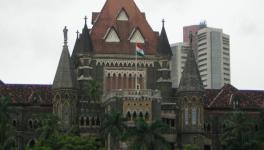An Affront to Judicial Majesty that Confuses the People too
Not long ago, Justice Rakesh Kumar of the Andhra Pradesh High Court is alleged to have said the following words: “How could the government auction the properties of the state? Had [the] government become bankrupt [that it had] to auction government properties? We will declare there is break down of constitutional machinery in the state and hand over [the] administration to the central government.” Based on this alleged remark, the Andhra Pradesh government asked Justice Kumar to recuse himself from hearing a Writ petition on his last day in office, i.e., a day before he was to retire. Interestingly, it created a situation where a High Court judge had to deny the allegations against himself and adjudicate on a petition that was asking him to not hear a matter a day before his retirement.
The hearing on 30 December 2020, the day before his retirement, became a kind of trial to examine whether the judge had indeed said this or not. Justice Kumar denied having said the last sentence related to breakdown of constitutional machinery in the state and handing over of the administration to the Centre, which was attributed to him by the state of Andhra Pradesh through the AAG, Sudhakar Reddy.
Justice Kumar took the bull by the horns on his last day in office. He not only denied the allegation of the state government that he had overreached his powers but also that he had wanted to examine whether there is a constitutional breakdown.
These events unfolded as the bench led by Justice Kumar was hearing a Public Interest Litigation challenging the decision of the state government to make outright sales of certain lands located in the heart of the cities of Guntur and Visakhapatnam.
A senior IAS officer, P Pravin Kumar, has filed certain newspaper clips to support this allegation, but the High Court noted that the news reports did not even refer to the alleged remark. The officer is now facing perjury and contempt of court proceedings for filing a false affidavit.
Two advocates appearing for the petitioners in the PIL, B Nalini Rao and Narra Srinivas Rao, emphatically stated that in none of the newspaper reports was it written that justice Kumar made such a comment.
The bench noted: Two learned counsels for the petitioner submitted that the second portion of the so-called observation, “We will declare there is break down of constitutional machinery in the state and hand over administration to the central government”, was not at all uttered by this court [Justice Rakesh Kumar].
16 Habeas Corpus Petitions
In fact, the judge had made these remarks on constitutional breakdown at a different hearing, though not exactly in the words alleged. A High Court bench consisting of Rakesh Kumar and J. Uma Devi was examining a bunch of 16 Habeas Corpus petitions on 1 October 2020, in the Reddi Govinda Rao vs State of Andhra Pradesh case, which relates to police excesses. In that case, the High Court directed that on the next date the senior counsel appearing on behalf of the state may come “prepared to assist the court as to whether in the circumstances which are prevailing in the state of Andhra Pradesh the court can record a finding that there is constitutional breakdown in the state or not”.
Immediately, the government’s lawyers pointed out that the High Court has no powers to record such an observation. Then, Justice Kumar said, “You can record your argument also...” Now, this does not mean that the bench has concluded about a breakdown. It was a remark made in a context, and in response to some comments, such as “...then the executive cannot function, and the courts should take over administration also”, according to advocates appearing for the petitioners.
The High Court is the only resort if human rights are violated. Illegally picking up individuals has become common in Andhra Pradesh. During the hearing, the judge summoned the state Director General of Police, and made him read through legal provisions which explain the rights of the people and the limitations of the police. The partisan media has, however, highlighted this as an “excess” and blamed Justice Kumar on social media platforms.
Illegal arrests, summons to DGP
It has become common in Andhra Pradesh for multiple appeals and applications to be filed on the basis of interim orders and observations of the courts, and to rush to the Supreme Court. The High Court, while rejecting the state’s petition to recall its order, observed on 14 December: “Since on [a] number of occasions the court had noticed [the] illegal picking up of persons by police and after filing of Habeas Corpus Writ petitions they were either being remanded or released. Even in this petition [Reddi Govinda Rao], after noticing such atrocities, this court, on 12 February 2020, had summoned the Director General of Police, Andhra Pradesh, who appeared on 14 February 2020. The High Court was insisting on implementation of provisions of law while arresting individuals.
On insistence of the court, “...assurance was given by the DGP for educating police officers to act in terms of [the] guidelines issued by the Hon’ble Supreme Court in DK Basu v State of West Bengal [AIR 1997 SC 610] and also subsequent amendments in the CrPC. The DGP had assured that he will take proper steps henceforth,” the bench noted.
The Bench was also shocked to learn that the advocates of the detenu had been threatened. It may be recalled that even High Court judges were attacked in filthy language on social media after passing these orders.
It is only after hearing the Writ petitions—including those of Habeas Corpus, illegal detentions, unconstitutional actions, closure of Telugu-medium schools, assaulting a doctor for demanding proper equipment in the fight against the Covid-19 pandemic, and several human rights violations etc—in which several actions of the government were challenged that the comment on breakdown emerged.
The media then highlighted the observations on constitutional breakdown, and the government escalated the matter to the Supreme Court, which it termed as “disturbing”. The Supreme Court stayed further proceedings and posted the matter for after the new-year holidays. The judge pointed out that the primary function of the High Court, while exercising its jurisdiction under Articles 226 and 227 of the Constitution, is to protect and enforce the fundamental rights of a citizen, if they are infringed on or taken away by the state; and that in the process of a hearing judges have the right to raise certain questions.
When the question before the court was about selling government lands in public auctions or e-auctions, Justice Rakesh Kumar had questioned whether there was a financial crunch or Emergency that had the state intending to transfer titles of state-owned land by way of auctions, that too for generating funds.
A state without land
Prima facie, some doubts arose in the mind of the High Court judge whether an elected government, whose term is for only five years, has the right to transfer the title of state lands. If it is the property of the state, certainly, every citizen of the state has some interest in such properties. And, being a trustee, that too for [only] five years, the government may neither sell nor transfer titles to such properties. The Bench observed that if such transactions are not objected to, there is a possibility that a time may come when the state will be termed as a “state without land”.
Reference to the Chief Minister’s complaint
Justice Kumar considered the Chief Minister’s complaint against courts a success, when he said, “I perceived that bureaucrats of this state have been emboldened after the apparent success of the Hon’ble Chief Minister of the State of Andhra Pradesh in addressing a letter to the Hon’ble Chief Justice of India and making it public, making allegation against one of the senior Judges of Hon’ble Supreme Court, the Hon’ble Chief Justice of AP High Court and number of sitting judges of AP High Court, with their names”.
This application was filed based on a sworn affidavit made by Pravin Kumar, Special Officer, Mission of Andhra Pradesh....Government of Andhra Pradesh. The allegations in his affidavit were discarded as “untrue”, “false” and amounting to “perjury”. The bench has ordered the initiation of criminal proceedings against the officer for perjury and issued a show-cause notice for contempt action against him.
It is true that in dozens of Writ petitions, the High Court has passed orders against the policies of the government. The adverse comments were violently responded to. Most of the petitioners were supporters of the Telugu Desam Party or TDP. Because of this, allegations over judges appointed during the TDP regime have been raised. The YSRCP and anti-TDP elements consider such allegations to be true. Media discussions are also divided along party lines; judges were trolled heavily on social media platform. Yet, it is difficult to say whether all orders are not guided by objective considerations of law.
These incidents have placed the people and the judiciary in a very embarrassing situation. If the judiciary is destroyed as an institution, it would be difficult to protect the rights of the people and maintain rule of law. That is why it was criticised as an assault on the majesty of the constitutional institutions. Aggressive allegations by the political executive, headed by a person charged under several provisions of criminal law, against the institution of the judiciary are an unheard-of event in Indian constitutional governance.
The author is a former Central Information Commissioner and teaches Constitutional Law. The views are personal.
Get the latest reports & analysis with people's perspective on Protests, movements & deep analytical videos, discussions of the current affairs in your Telegram app. Subscribe to NewsClick's Telegram channel & get Real-Time updates on stories, as they get published on our website.
























